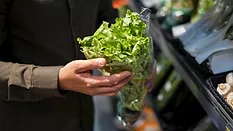
Recall/Crisis Management
Crisis management encompasses government and industry management of food safety crises such as foodborne illness outbreaks and associated recalls. Food and beverage recalls by food companies or retail outlets may be due to contamination or adulteration.
Articles
More ArticlesPodcasts
More PodcastsNever miss the latest news and trends driving the food safety industry
Newsletters | Website | eMagazine
JOIN TODAY!Copyright ©2026. All Rights Reserved BNP Media.
Design, CMS, Hosting & Web Development :: ePublishing



